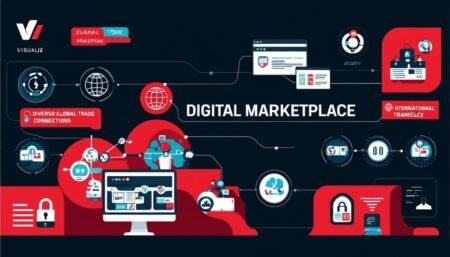As AI and automated systems transform industries, companies are enhancing operational efficiencies and embracing ethical marketing practices to meet evolving consumer demands.
In recent years, the integration of artificial intelligence (AI) and automated systems has become a catalyst for significant enhancements across various industries. As businesses navigate a competitive landscape, the application of AI-driven tools in operations is not only increasing efficiency but also shaping customer engagement strategies that align with changing consumer behaviour.
Payroll systems represent a critical aspect of operational efficiency for companies. Automated payroll services streamline processes that ensure accuracy and compliance in employee payments. Asanify exemplifies this trend. Designed for fast-growing global businesses, the platform facilitates payroll management across over 200 countries and integrates features such as tracking employee attendance, performance, and expense management within a single system. By alleviating administrative burdens associated with payroll processing, businesses can reallocate resources to focus on growth initiatives while ensuring that employees are paid accurately and on time.
In marketing, the role of influencer partnerships continues to expand. Brands are increasingly turning to influencer marketing agencies such as House of Marketers to connect with targeted audiences through trusted voices. As authenticity becomes paramount for consumers, these agencies offer expertise in crafting tailored campaigns that build credibility and establish brand authority in the market. Platforms like Heepsy enable brands to identify influencers based on demographics and engagement metrics, facilitating campaigns that resonate with specific target audiences and drive return on investment.
The evolution of Augmented Reality (AR) and Virtual Reality (VR) technologies is also prominently emerging in marketing strategies. By 2025, these technologies are expected to transform consumer engagement, allowing brands to create immersive experiences that augment traditional shopping methods. Retailers are increasingly adopting AR applications that allow consumers to visualize products in their personal environments, enhancing decision-making processes prior to purchases. In addition, VR technologies provide opportunities for brands to host virtual events and showrooms, facilitating a deeper connection with customers from the comfort of their homes.
Sustainability and ethical marketing principles are becoming fundamental components of successful brand strategies as consumer preferences shift towards environmental and social responsibility. Brands are prioritising transparency in supply chains and ethical business practices while promoting eco-friendly products. This landscape calls for effective communication of sustainability efforts, including obtaining certifications to bolster credibility. Businesses that engage with communities around sustainability initiatives simultaneously enhance their brand image and foster consumer loyalty.
Artificial intelligence is playing a pivotal role in the evolution of digital marketing. The ability to analyse large datasets allows businesses to identify patterns in consumer behaviour, offering insights that drive improved targeting of marketing strategies. AI-driven tools enable real-time personalisation, recommending products based on consumers’ past interactions and preferences. Customer service experiences are also being enhanced through AI chatbots and virtual assistants, which provide instant support and allow companies to streamline communication while improving customer engagement.
AI also drives advancements in Search Engine Optimisation (SEO). By analysing trends and data, AI tools support businesses in optimising content for better search rankings. These technologies assist in identifying relevant keywords and improving website structure, resulting in a more effective online presence that draws in traffic and elevates brand visibility.
Furthermore, AI is reshaping Customer Relationship Management (CRM) practices. By automating routine tasks and providing in-depth insights into customer preferences, AI enables businesses to foster stronger relationships with their clients. This enhanced understanding of customer needs not only improves communication strategies but also increases sales opportunities, enhancing overall business performance.
As the landscape continues to evolve, businesses are increasingly recognising the importance of aligning their operations with the sophisticated demands of modern consumers. By embracing technological advancements, prioritising ethical practices, and utilising AI-driven solutions, companies are positioned to navigate the complexities of an ever-changing market environment. The implications of these trends are likely to define competitive strategies well into 2025 and beyond.
Source: Noah Wire Services
- https://adamfard.com/blog/ai-in-business-operation – Corroborates the role of AI in enhancing business efficiency, predictive analytics, and personalization of customer experiences.
- https://www.avvale.com/newsroom/the-impact-of-ai-on-business-operations – Supports the impact of AI on business operations, including automation, advanced data analytics, and customer experience personalization.
- https://www.payset.io/post/the-impacts-of-artificial-intelligence-on-business – Details the transformation of business operations and strategies through AI, including automation, data analysis, and personalized customer experiences.
- https://www.investopedia.com/how-ai-is-used-in-business-8611256 – Explains the various applications of AI in business, such as customer engagement, data analysis, automation, and supply chain management.
- https://www.snowflake.com/trending/impact-artificial-intelligence-business/ – Highlights AI’s ability to save time and resources, support decision-making, and enhance efficiency in business operations.
- https://adamfard.com/blog/ai-in-business-operation – Discusses AI’s role in marketing, including personalized recommendations and targeted advertising, aligning with changing consumer behavior.
- https://www.avvale.com/newsroom/the-impact-of-ai-on-business-operations – Mentions the use of AI in innovation and product development, which can be applied to emerging technologies like AR and VR in marketing.
- https://www.payset.io/post/the-impacts-of-artificial-intelligence-on-business – Addresses the importance of sustainability and ethical marketing principles, and how AI can support these efforts through data analysis and insights.
- https://www.investopedia.com/how-ai-is-used-in-business-8611256 – Explains AI’s role in enhancing customer service experiences through chatbots and virtual assistants, and its impact on SEO and CRM practices.
- https://www.snowflake.com/trending/impact-artificial-intelligence-business/ – Supports the idea that AI is reshaping CRM practices by automating routine tasks and providing in-depth insights into customer preferences.
- https://www.avvale.com/newsroom/the-impact-of-ai-on-business-operations – Highlights the strategic integration of AI in business operations to drive innovation, efficiency, and customer orientation, aligning with modern consumer demands.
- https://insightssuccess.com/modern-marketing-trends-and-how-to-execute-a-successful-project-in-2025/ – Please view link – unable to able to access data















